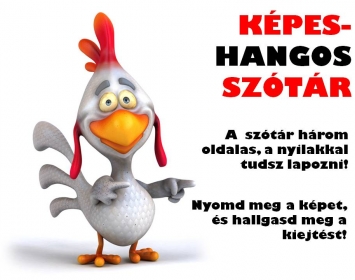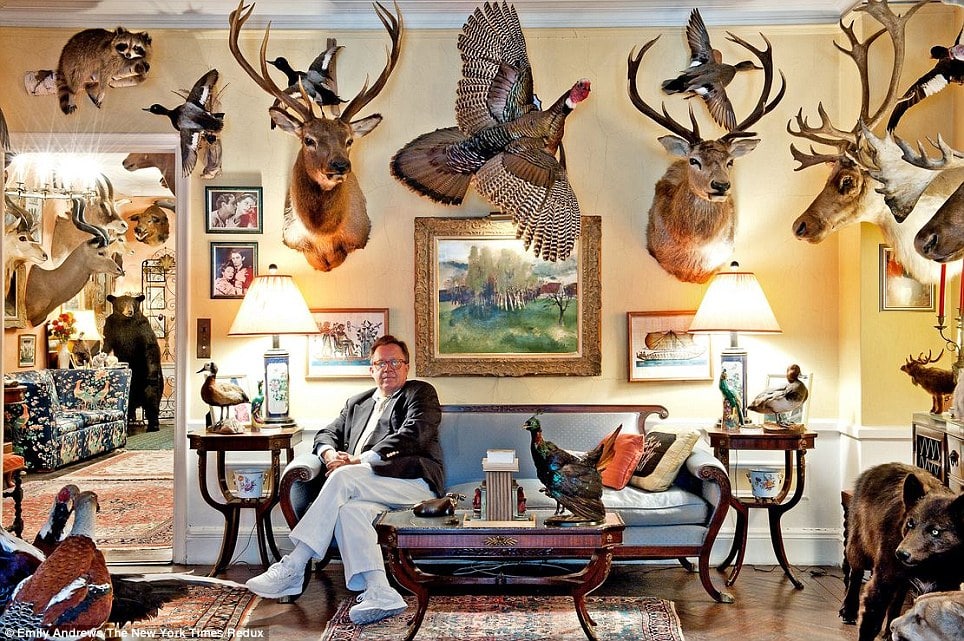The Origins of 11 Funny Animal-Related Sayings
Chances are, you’ve uttered an animal-related saying recently – did you go “chew the cud” with a pal? Wonder what it would like to be “a fly on the wall”? Perhaps you went and “looked a gift horse in the mouth”?—but you still might not know where such freely used adages came from. A “doggie bag” might sound obvious, and clams sure look happy enough, but the origins of various animal-related sayings are often more complicated (and fun) than you’d expect.
1. DOGGIE BAG
Although the term “doggie bag” might sound relatively self-explanatory – hey, it’s leftovers for your pet! – the saying actually has a surprisingly interesting history. During World War II, food was scarce for everyone (including pets), but that didn’t help curb restaurant wastefulness; packaging up leftovers (regardless of who they were for) wasn’t yet standard practice. Eventually, a group of San Francisco cafes began to offer “Pet Pakits” to their diners in order to zip their scraps home to the furry ones. The practice soon spread around the country, ensuring that restaurant waste went down and the spread of doggie bags went way up.

2. WHEN PIGS FLY
Various iterations of sayings about piggies flying have existed for centuries. It’s believed that the first use of a flying pig comment (in appropriate sassy and disbelieving context) appeared in John Withals’ 1616 English-Latin dictionary, A Shorte Dictonarie for Yonge Begynners. The dictionary included a list of proverbs, which included “pigs fly in the ayre with their tayles forward.”
3. BUSY AS A BEE
It was Geoffrey Chaucer who gave us this particular saying. The first known use of a busy bee adage appeared in his Canterbury Tales. In “The Squire’s Tale,” a passage reads: “Lo, suche sleightes and subtilitees/ In wommen be; for ay as busy as bees/ Be thay us seely men for to desceyve,/ And from a soth ever a lie thay weyve. /And by this Marchaundes tale it proveth wel.”
4. WILD GOOSE CHASE
Although William Shakespeare is believed to be the first author to use the phrase “wild-goose chase” (it appears in Romeo & Juliet), his version of such a chase referred to a type of horse race that was popular during his time. It wasn’t until centuries later when it appeared in its current form in 1811. By then, it had been defined as “a tedious uncertain pursuit, like the following a flock of wild geese, who are remarkably shy.” Sounds about right!
5. AS HAPPY AS A CLAM
The first mention of seemingly smiling clams was published in 1833, in James Hall’s The Harpe’s Head: A Legend of Kentucky, “It never occurred to him to be discontented…He was as happy as a clam.” But although Hall’s mention appears to be the first on record, the actual saying is “as happy as a clam at high water,” reflecting the one time of day that clams and their ilk don’t have to worry about land-loving predators. That saying popped up in an 1844 edition of The Adams Sentinel, a Pennsylvania newspaper, and is still considered to be the appropriate version to use when quoting the adage.
6. BLACK SHEEP
Black animals have long been viewed as bad omens, and although black cats seems to have gotten the bulk of in-person fears, sheep have been saddled with the most popular saying regarding their fur pigmentation. It’s unclear why this happened—some sources blame an unchecked version of a 1535 Bible (which muddled the story of Jacob and his flock of animals, making it sound as if black sheep were the ones cast out, which isn’t true to the original text), but a clearer version pops up in Thomas Shepard’s 1640 text, The Sincere Convert. Shepard wrote, “cast out all the Prophane people among us, as drunkards, swearers, whores, lyers, which the Scripture brands for blacke sheepe, and condemnes them.” Not very nice.
7. CAT GOT YOUR TONGUE?
It’s believed that this adage—a snappy remark made to a silent person—somehow sprung up from kids’ stories. The first appearance of it in print already derided it as a children’s saying, though no previous versions of it, in books or magazines, have been found. It appeared inBallou’s Monthly Magazine in 1881, in a single line that read: “has the cat got your tongue, as the children say?”
8. IN THE DOGHOUSE
It’s long been believed that the term “in the doghouse” first appeared in J.M. Barrie’s Peter Pan—after all, beloved father Mr. Darling sends himself to the dog’s house as a personal penance for letting his kids be temporarily stolen by their high-flying new pal—but the saying was around much earlier. An actual definition of the term (“in dog house, in disfavor”) appeared in J.J. Finerty’s 1926 book Criminalese, a book meant to share “the language of criminals.”
9. RED HERRING
This one is actually fairly complicated. Although it’s easy enough to locate the first use of “red herring” in a text—penned by John Heywood in 1546, as part of a glossary of proverbs he compiled—it’s less obvious how the saying developed its meaning (“something misleading”). Although some people believe it springs from the old use of fish to throw off the scent of hunting dogs, most believe we owe the tricky saying to an actual trick.
In 1672, British clergyman Jasper Mayne died, leaving behind a trunk for one of his servants, who popped it open (expecting something good), only to find it was filled with herring. Although that herring was salted, later reports referred to it as being red, a mistake on top of some misdirection. But other etymologists trace the story to a 19th century article in theWeekly Political Register criticizing the British press for false reporting on Napoleon’s defeat, taking their attention off of domestic issues. To illustrate the story, he invented a story of a young boy dragging a red herring to distract hunting dogs. Despite being fictional, it might be the origin of the hunt myth.
10. SWAN SONG
The idea that swans “sing” just before they die has been disproven time and time again, although that hasn’t stopped the spread of this saying. In fact, Pliny the Elder included a mention of the falsehood-rooted saying in his A Natural History, all the way back in A.D. 77. Still, the “swan song” saying and ideation pops up in the works of Shakespeare, Coleridge, and Chaucer, proving that no one can avoid a poetic vision, even if it’s false.
11. THE BEE’S KNEES
Tempted to dismiss this one as “flapper talk”? You’re not the only one. Although “the bee’s knees” has been around as a purposely nonsensical saying since the 18th century, it was only adopted into its current use (as “something cool”) during the Roaring Twenties. Even in a 1922 newspaper article in Ohio’s The Newark Advocate that sought to explain various new wave terms, the piece declared “that’s flapper talk,” just another saying appropriated by the young andhip.
source: mentalfloss
Read the definitions and find the adage that means the same from the text.
1. an unnoticed observer of a particular situation
2. acontainer for leftover food to be carried home from a meal eaten at a restaurant
3. away of saying that something will never happen
4. very active and energetic; hardworking
5. afoolish and hopeless search for or pursuit of something unattainable
6. extremely happy
7. amember of a family or group who is regarded as a disgrace to it
8. If someone asks that, they want to know why you are not speaking when they think you should
9. to be in disfavor
10. something misleading
11. the final performance or activity of a person’s career
12. something cool, the height of excellence
Key:
1. afly on the wall
2. doggie bag
3. when pigs fly
4. busy as a bee
5. wild goose chase
6. as happy as a clam
7. black sheep
8. Cat got your tongue?
9. inthe doghouse
10. red herring
11. swan song
12. the bee’s knees
Vocabulary
to chew the cud | rágódni, töprengeni valamin |
a fly on the wall | olyan megfigyelője egy helyzetnek, akit nem vesznek észre |
Don’t look a gift horse in the mouth. | Ajándék lónak ne nézd a fogát. |
doggie bag | étteremből maradék ételt becsomagolva elvinni |
adage | közmondás, bölcs mondás |
clam | kagyló (ehető) |
leftovers | ételmaradék |
scarce | szűk, szűkös |
to curb | megfékezni, meggátolni |
wastefulness | pazarlás |
scrap | maradék |
when pigs fly | majd ha piros hó esik |
sassy | szemtelen, pimasz |
squire | gavallér |
wild goose chase | valami elérhetetlen cél hiábavaló kergetése |
horse race | lóverseny |
tedious | egyhangú, unalmas |
pursuit | törekvés, hajsza |
a flock of wild geese | vadliba csapat |
discontented | elégedetlen |
ilk | fajta |
predator | ragadozó |
black sheep | fekete bárány |
bulk | zöme valaminek |
drunkard | részeges |
swearer | káromkodó |
whore | szajha, ribanc |
lyer = lier | hazug |
to condemn | elítélni, kárhoztatni |
Cat got your tongue? | Elvitte a cica a nyelvedet? |
to deride | kigúnyolni, kinevetni |
in the doghouse | számkivetett helyzetben lenni |
penance | bűnbánat, penitencia |
temporarily | ideiglenesen |
red herring | hamis nyom |
to compile | összeállítani |
trunk | utazóláda |
fictional | kitalált |
swan song | hattyúdal |
ideation | fogalomalkotás |
the bee’s knees | nagyon kitűnő, nagyon klassz |
flapper talk | nonszensz |
hip | menő |






